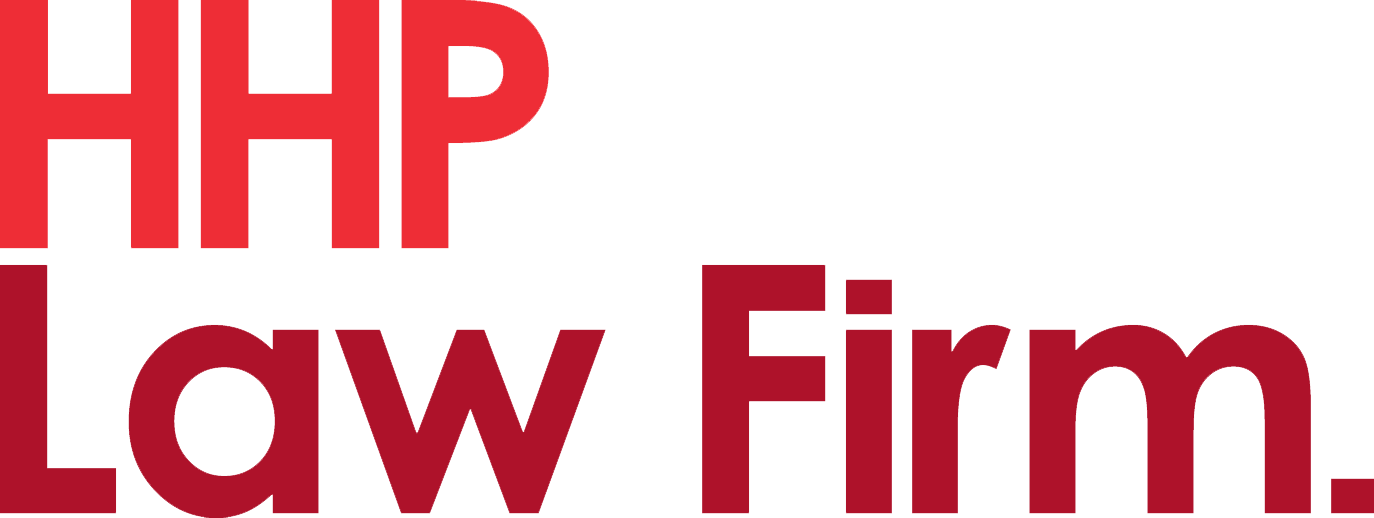In brief
On 11 July 2023, Indonesia’s house of representative (known as Dewan Perwakilan Rakyat Indonesia/DPR RI) approved the 2023 draft health law. A month later, the President enacted Law No. 17 of 2023 on Health (“Health Omnibus Law“) through the state secretariat. The Health Omnibus Law contains provisions on matters such as pharmaceutical preparations, medical devices, healthcare services, healthcare technology (including telehealth and telemedicine), R&D and other compulsory measures.
The Health Omnibus Law revokes 11 previous laws:
- Law No. 419 of 1949 on Prescription Drugs
- Law No. 4 of 1984 on Plagues
- Law No. 29 of 2004 on Medical Practice
- Law No. 36 of 2009 on Health (“Previous Health Law“)
- Law No. 44 of 2009 on Hospitals
- Law No. 20 of 2013 on Medical Education
- Law No. 18 of 2014 on Mental Health
- Law No. 36 of 2014 on Healthcare Professionals
- Law No. 38 of 2014 on Nursing Practices
- Law No. 6 of 2018 on Health Quarantine
- Law No. 4 of 2019 on Midwifery
The Health Omnibus Law contains numerous new provisions, but many provisions of the revoked laws are still maintained under the Health Omnibus Law.
The implementing regulations of the revoked laws have been determined to be valid as long as they do not contradict the provisions of the Health Omnibus Law. Given the wide range of topics that need to be covered, we plan to divide our alert on Health Omnibus Law into several alerts. In this client alert, we will cover notable key provisions relating to pharmaceutical preparations and medical devices that may be of interest to businesses in the healthcare services sector. For context, under the Health Omnibus Law, ‘pharmaceutical preparations’ is defined as drugs, drug materials and natural drugs, including natural drug materials, cosmetics, health supplements and quasi-drugs.
Key takeaways
The Health Omnibus Law features new concepts and requirements for pharmaceutical and medical device aspects. We summarize the key provisions below.
1. Local content – strong indication of local content prioritization
We note a recurring theme of national resilience and self-sufficiency in the Health Omnibus Law. In the supply and procurement sectors, the central government and regional governments will realize the local content prioritization by developing and strengthening the national supply chain of products from upstream to downstream in an integrated manner. The new Health Omnibus Law mainly stipulates the following frameworks in relation to the above.
- Local content prioritization
The central government and regional governments are mandated by the Health Omnibus Law to carry out the following actions to strengthen the national supply chain of products (which will be implemented in stages, based on national priorities):
- Locally manufacture pharmaceutical preparations and medical devices to fulfil domestic and export needs and to improve manufacturing/utilization of manufacturing capacity
- Ensure local pharmaceutical and medical device manufacturers (including foreign investment/PMA manufacturers) use locally sourced raw materials in manufacturing locally manufactured drugs and medical devices
In connection with the above, the Health Omnibus Law also generally mandates the central government, regional governments and public and healthcare facilities to prioritize the use of locally manufactured pharmaceutical preparations and medical devices (while still keeping in mind the quality, efficacy and safety aspects of the products). Manufacturers are also required to prioritize the use of locally sourced raw materials in producing locally manufactured pharmaceutical preparations and medical devices.
The Health Omnibus Law also stipulates that, in procurement, the central government, regional governments and healthcare facilities are required to prioritize the use of drugs and medical devices that are manufactured using locally sourced raw materials (while still keeping in mind the quality, efficacy and safety aspects of the products).
Policies on the pharmaceutical preparation and medical device industries local content requirement will be further regulated in government regulation(s).
- Incentivization – opportunities for pharmaceutical and medical device industries?
Under the Health Omnibus Law, the central government will offer fiscal and non-fiscal incentives for pharma preparations and medical device manufacturers that carry out research, development and innovation activities in Indonesia, as well as those that carry out their production using local raw materials.
2. Price controls over drugs and medical devices in the private sector
The Health Omnibus Law offers a new concept where the central government and regional governments can establish a pharmaceutical management facility to manage the availability, equity and affordability of health supplies. Management of health supplies includes the planning, supply and distribution stages.
Other than the above new concept, the Health Omnibus Law also allows the central government to centrally regulate and control the prices of drugs and medical devices.
We do have regulations that regulate drug pricing, one of the main regulations being Minister of Health (MOH) Regulation No. 98 of 2015 on Highest Retail Prices of Drugs (“MOH Regulation 98“), which regulates the highest retail price (known as harga eceran tertinggi or HET) for generic and non-generic drugs from pharmacies to patients.
However, right now the government does not impose fixed pricing on drug resale prices for non-generic drugs. The HET calculation for non-generic drugs under MOH Regulation 98 is not fixed, unlike for generic drugs, the prices of which must follow the fixed prices issued by the government through either of the following:
- MOH decrees (for generic drugs that are not sold in e-catalogues)
- The e-catalogue prices set out for the drugs (for generic drugs that are sold in e-catalogs)
For non-generic drugs, the government does not regulate the net resale price of drugs from pharmaceutical wholesalers to pharmacies (known as harga netto apotek or HNA). Accordingly, the amount of the HET will fluctuate depending on the HNA price of drugs from wholesalers to pharmacies, meaning that the final amount of the HET is not fixed. The formula for calculating HET for non-generic drugs is HET = HNA + (28% x HNA).
If the government is planning to centralize drug pricing for generic and non-generic drugs, the potential implication is that the government might impose fixed pricing for non-generic drugs through MOH decree for the private market, similar to what it has been doing for generic drugs
3. State budget expenditure – the non-inclusion of a specific budget allocation for the healthcare sector
The Health Omnibus Law provides no specified amount of state budget for the healthcare sector, which is a concern for business actors, since this might lead to a lower state budget for healthcare, which then may translate to a decrease of sales in the public market.
In comparison, the Previous Health Law provided that the central government would allocate 5% of the state budget (excluding wages) to the healthcare sector, while the provincial/regional governments would allocate 10% of the regional budget (excluding wages). Further, at least two-thirds of those budgets had to be allocated to public-sector needs.
Nevertheless, there is a specific provision that requires the government to prioritize budgets for the healthcare sector. The minimum budget expenditure is not specifically mandated now; however, it is likely to be included in the implementing regulation(s) of the Health Omnibus Law.
4. Standard requirements – uncertainty on the guidelines that businesses must follow
Set of new standards and requirements for pharmaceutical preparations
In essence, the Health Omnibus Law mandates that pharmaceutical preparations meet certain standards and requirements. The following are the standards and requirements that are provided under the Health Omnibus Law.
| No. | Forms of pharmaceutical preparations | Standards and requirements under the Health Omnibus Law |
| 1. | Drugs and drug substances | Must meet pharmacopeia standards and requirements in Indonesia and/or other acknowledged standards. |
| 2. | Natural drugs | Must meet Indonesian herbal pharmacopoeia standards and/or requirements, and/or other acknowledged standards. |
| 3. | Health supplements and quasi-drugs | Must meet Indonesian pharmacopeia, Indonesian herbal pharmacopeia standards and/or requirements, and/or other acknowledged standards. |
| 4. | Cosmetics | Must meet Indonesian cosmetics codex standards and/or requirements, and/or other acknowledged standards. |
| 5. | Raw materials (i.e., used for natural drugs, health supplements, quasi-drugs and certain cosmetic preparations) | Must meet standards and/or quality requirements as pharmaceutical raw materials. |
| 6. | Medical devices and household health supplies | Must meet the standards and/or requirements for pharmaceutical preparations and medical devices set by the central government. |
Note that (i) pharmacopeia standards that are internationally acknowledged, and (ii) analytical/monograph methods that are determined by the central government, are not accommodated under Indonesian pharmacopeia standards.
Potential sanctions
Uncertainty of the standards may potentially affect businesses as there are several criminal sanctions for businesses that are not compliant with the standards. Under the Health Omnibus Law, non-compliance may lead to a maximum of 12 years of imprisonment and an IDR 5 billion penalty. Administrative sanctions can also be imposed on corporations in the form of compensation payment, revocation of certain permits and/or closure of all or part of the place of business and/or corporate activities.
Potential issues
Although the standard requirements for pharmaceutical preparations are set out under the Health Omnibus Law, there are still several concerns due to uncertainty and inconsistencies in the standards, as follows:
- What are the “other standards” that the central government would acknowledge outside of Indonesian pharmacopeia?
- What aspects of the business would the central government regulate through “other standards”?
- Do the sudden changes to the centrally governed standards make it difficult for business actors to adapt?
- Is there any potential disconnect from the central government in imposing relevant standards for the industry?
Although the standards remain uncertain, a new specific set of standards may be included in the implementing government regulation(s) of the Health Omnibus Law.
Conclusion
Overall, the Health Omnibus Law covers several sets of standards for certain aspects of pharmaceuticals and medical devices. As the Health Omnibus Law is still under development and no implementing regulation has been issued since its enactment, it is important for businesses in the healthcare sector to keep themselves updated on the development of regulations and identify the compliance actions that are applicable to them. It is also important to know what businesses need to implement at this stage in respect of the Health Omnibus Law since the Health Omnibus Law is already effective since its enactment date.
Based on Article 456 of the Health Omnibus Law, the implementing regulations of the Health Omnibus Law must be issued at the latest one year after the enactment of the Health Omnibus Law. Like other regulations, we expect some delay from the government in issuing the implementing regulations for this law. Also, although the Health Omnibus Law is technically already in effect as of 8 August 2023, we still expect some trial and error from the government in implementing the provisions stipulated under the Health Omnibus Law, and business actors would still need to monitor the implementation of the regulation closely from time to time, to check whether the government has already fully implemented the provisions.
* * * * *

© 2023 HHP Law Firm. All rights reserved. HHP Law Firm is a member firm of Baker & McKenzie International. This may qualify as “Attorney Advertising” requiring notice in some jurisdictions. Prior results do not guarantee a similar outcome.



